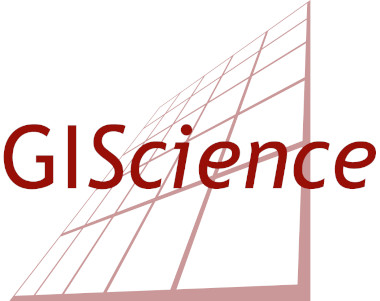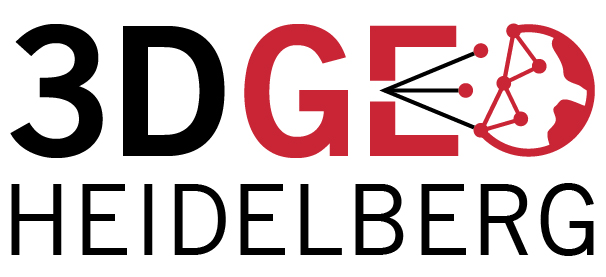Category: Research
-
Laser scanning campaign at UNESCO World Heritage Site Lorsch Abbey
On Wednesday, 19th of March, the Kings Hall (Torhalle) facades at UNESCO World Heritage Site Lorsch Abbey were captured in 3D with a terrestrial laser scanner Riegl VZ-400 (provided by the Chair of GIScience) by Martin Hämmerle (LiDAR Research Group). The produced data set consists of about 65 million laser points and will allow for…
-
LVISA Expert User Contest – Winner of first prize
Today, the winner of the first LVISA Expert User Contest was awarded. The prize rewards the most valuable and extensive user feedback to the LVISA developers within the last year. The winner is Martin Hämmerle who receives a brand-new MS Kinect sensor (with portable screen) for 3D data capturing and a symbolic small tree to…
-
Information fusion infrastructure for remote-sensing and in-situ sensor data to model people dynamics
The term “real time” regarding airborne remote-sensing data can only seldom be found in recent literature on geospatial research. In the course of the German Aerospace Center (DLR) project VABENE, an airborne monitoring system has been developed which is able to pre-process remotely sensed images in real time by an on-board computing system. Afterwards, the…
-
New Release of LVISA – Exploring 3D Point Clouds of Trees in the Web
The LIDAR Research Group (LRG) released LVISA – a novel system for analyzing point clouds of vegetation. This system examplifies a web-based laser scanning database for the management and analysis of tree reference signatures. It combines techniques and methods of LiDAR and 3D GIScience. We present a new release of LVISA including re-designed and re-implemented…
-
New video online: 3D solar potential assessment for renewable energy supply
Watch the video: http://youtu.be/TaCUaG5XEas We use methods like laser scanning and GIS in combination with computer science to simulate the sun’s path and the respective shadows that are cast by 3D objects. Thereby, we can assess the solar potential for certain areas and surfaces. Solar potential assessments can play a crucial role in studies that…
-
Fusion of human and remote sensor data in urban environments
OpenStreetMap (OSM) currently represents the most popular project of Volunteered Geographic Information (VGI): geodata are collected by common people and made available for public use. Airborne Laser Scanning (ALS) enables the acquisition of high-resolution digital elevation models that are used for many applications. Our new study combines the advantages of both ALS and OSM, offering…
-
Prof. Alexander Brenning (Waterloo) – Visiting Professor (Humboldt Fellow) works on Statistical Geocomputation
Prof. Dr. Alexander Brenning from the University of Waterloo (Canada) is spending a research stay as Visiting Professor from February to August 2014 at the GIScience Research Group at Heidelberg University. This was made possible through a grant from the prestigious Humbold-Foundation. His research will focus on “Statistical GeoComputation: Linking Physical and Human Geographical Approaches“.…
-
Visiting Professor Joao Porto is working on Disaster Mapping 2.0
Prof. Dr. Joao Porto, a computer scientist from University of Sao Paulo, Brazil has received a grant by Heidelberg University funded through the DFG Initiative of Excellence that allows him to stay as visiting professor at the GIScience Research Group of Heidelberg University through 2014 and then returning to Heidelberg several times until 2017. His…
-
AGILE Workshop on Digital Earth: What the hack?
We invite you to participate in our workshop Digital Earth: What the hack?, as part of the 17th AGILE Conference on Geographic Information Science, 3-6 June 2014, Castellón, Spain. The proposed workshop will prepare hackathons including geospatial information and processing across a variety of possible disciplines and thereby implementing Digital Earth applications. Hackathons are a…
-
GIScience and Interdisciplinary Mountain Research
Dr. Martin Rutzinger, an expert in interdisciplinary mountain research and GIScience, joins our research group in February 2014 as guest researcher. Martin is with the Institute for Interdisciplinary Mountain Research (IGF) of the Austrian Academy of Sciences (ÖAW) in Innsbruck. His research focuses on bridiging methodologies of remote sensing and geoinformatics for Earth observation and…
-
New visiting researcher Elena Rapisardi from the University of Turin
We are very pleased to receive Elena Rapisardi as a visiting researcher at the GIScience research group. Elena is a PhD Candidate at the University of Turin, Italy (at the Doctoral School of Sciences and Innovative Technologies, Ph.D Program in Earth Sciences) under the supervision of Prof. Marco Giardino, with a project on collaborative management of geological…
-
Do Cities makes us (mentally) ill?
this is a bit of a provoking question – but if you want – this is a very shortened version of one of the research questions in a new project on Psychogeography together with the Central Institute for Mental Health (ZI) in Mannheim and other parters. It looks into the relationship between stress, mental health…


